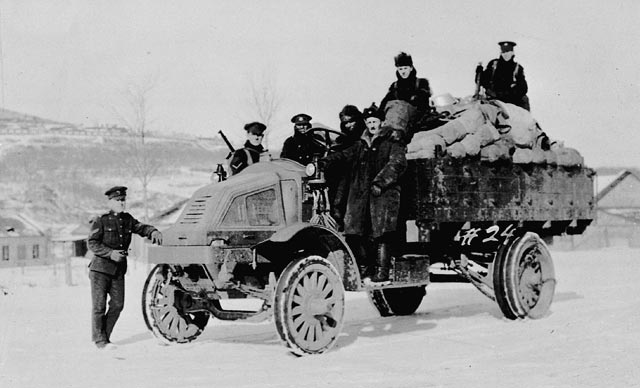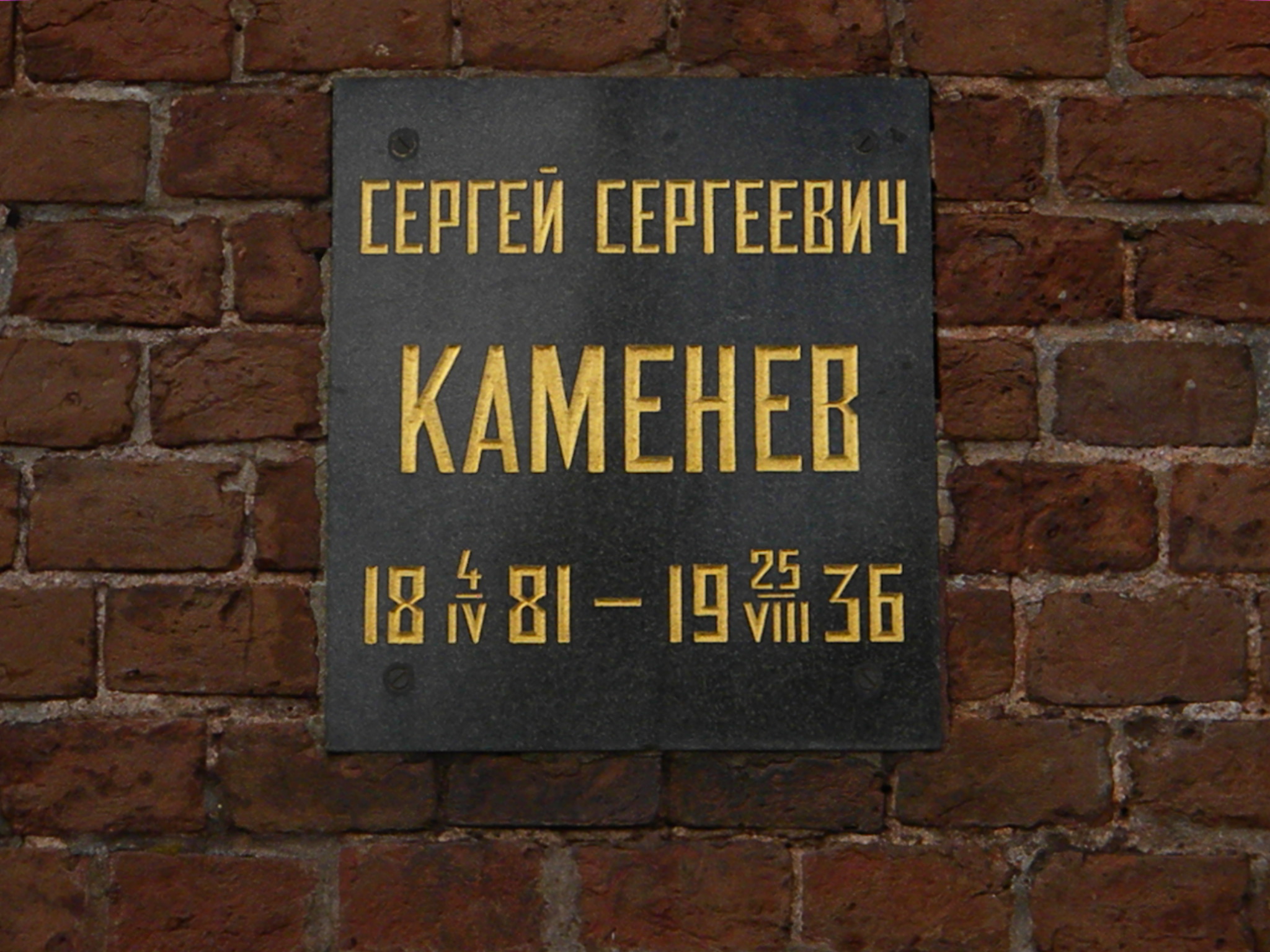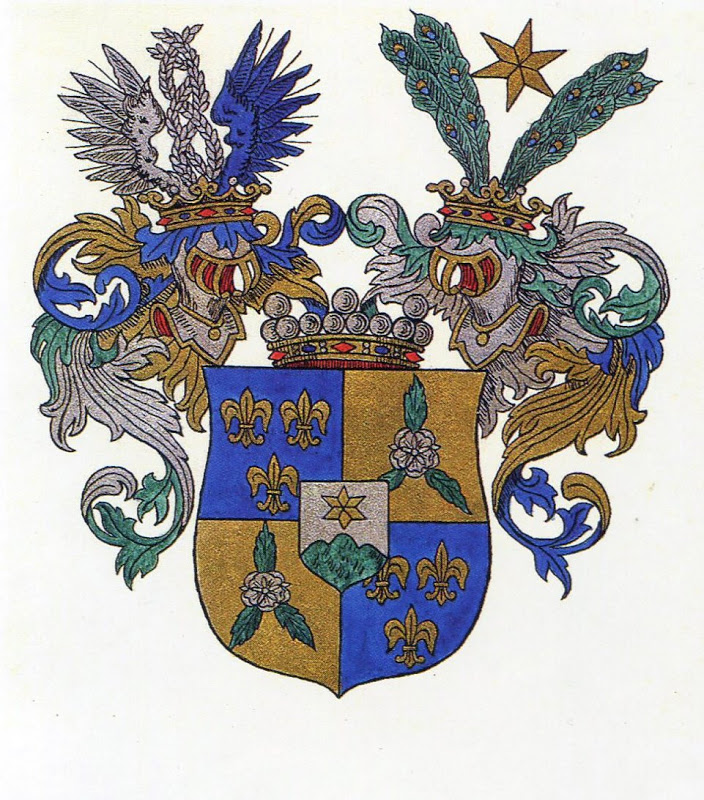|
Siberian Expedition
The Siberian intervention or Siberian expedition of 1918–1922 was the dispatch of troops of the Entente powers to the Russian Maritime Provinces as part of a larger effort by the western powers, Japan, and China to support White Russian forces and the Czechoslovak Legion against Soviet Russia and its allies during the Russian Civil War. The Imperial Japanese Army continued to occupy Siberia even after other Allied forces withdrew in 1920. Background Following the Russian October Revolution of November 1917, the new Bolshevik government in Russia signed a separate peace treaty with the Central Powers in March 1918. The Russian collapse on the Eastern Front of World War I in 1917 presented a tremendous problem to the Entente powers, since it allowed Germany to boost numbers of troops and war ''matériel'' on the Western Front. Meanwhile, the 50,000-strong Czechoslovak Legion in Russia, fighting on the side of the Allied Powers, became stranded in non-Allied territory w ... [...More Info...] [...Related Items...] OR: [Wikipedia] [Google] [Baidu] |
Allied Intervention In The Russian Civil War
Allied intervention in the Russian Civil War or Allied Powers intervention in the Russian Civil War consisted of a series of multi-national military expeditions which began in 1918. The Allies first had the goal of helping the Czechoslovak Legion in securing supplies of munitions and armaments in Russian ports; during which the Czechoslovak Legion controlled the entire Trans-Siberian Railway and several major cities in Siberia at times between 1918 and 1920. By 1919 the Allied goal became to help the White forces in the Russian Civil War. When the Whites collapsed the Allies withdrew their forces from Russia by 1920 and further withdrawing from Japan by 1922. The goals of these small-scale interventions were partly to stop Germany from exploiting Russian resources, to defeat the Central Powers (prior to the Armistice of November 1918), and to support some of the Allied forces that had become trapped within Russia after the 1917 Bolshevik revolution. Allied troops landed in ... [...More Info...] [...Related Items...] OR: [Wikipedia] [Google] [Baidu] |
Alexander Kolchak
Alexander Vasilyevich Kolchak (russian: link=no, Александр Васильевич Колчак; – 7 February 1920) was an Imperial Russian admiral, military leader and polar explorer who served in the Imperial Russian Navy and fought in the Russo-Japanese War of 1904–1905 and the First World War. During the Russian Civil War of 1917–1922 he established an anti-communist government in Siberia — later the Provisional All-Russian Government — and became recognized as the "Supreme Leader and Commander-in-Chief of All Russian Land and Sea Forces" by the other leaders of the White movement from 1918 to 1920.Jon Smele (2006) ''Civil War in Siberia: The Anti-Bolshevik Government of Admiral Kolchak, 1918–1920'', Cambridge University Press, . p.77 His government was based in Omsk, in southwestern Siberia. For nearly two years, Kolchak served as Russia's internationally recognized head of state. However, his efforts to unite the White Movement failed; Kolchak refused t ... [...More Info...] [...Related Items...] OR: [Wikipedia] [Google] [Baidu] |
Sergey Kamenev
Sergey Sergeyevich Kamenev (russian: Серге́й Серге́евич Ка́менев; April 16 Old_Style_and_New_Style_dates">O.S._April_4.html" ;"title="Old_Style_and_New_Style_dates.html" ;"title="nowiki/>O.S._April_4">Old_Style_and_New_Style_dates.html"_;"title="nowiki/>Old_Style_and_New_Style_dates">O.S._April_4_1881_–_August_25,_1936)_was_a_Soviet_Union.html" "title="Old Style and New Style dates">O.S. April 4">Old_Style_and_New_Style_dates.html" ;"title="nowiki/>Old Style and New Style dates">O.S. April 4 1881 – August 25, 1936) was a Soviet Union">Soviet military leader who reached Komandarm 1st rank. Kamenev was born in Kiev. In World War I he commanded a regiment in the rank of Colonel. He became a member of the All-Union Communist Party (Bolsheviks) in 1918. In July 1919, Kamenev replaced Jukums Vācietis as Commander-in-chief of the Red Army during the Russian Civil War. Kamenev was a member of the Revolutionary Military Council of the USSR from April 1924 ... [...More Info...] [...Related Items...] OR: [Wikipedia] [Google] [Baidu] |
Jukums Vācietis
Jukums Vācietis (russian: Иоаким Иоакимович Вацетис, link=no, ''Ioakim Ioakimovich Vatsetis''; 11 November 1873 – 28 July 1938) was a Latvian Soviet military commander. He was a rare example of a notable Soviet leader who was not a member of the Communist Party (or of any other political party), until his demise during the Great Purge in the 1930s. Early life Jukums Vācietis's family were Latvian labourers. From about the age of six, he worked as a shepherd and as a labourer, while he was a pupil at the Skede Parish School. In 1889-91, he studied at the Ministry of Kuldiga school. At the same time, he worked in a match factory. Military career Vācietis started his military career in Imperial Russia in 1891, and reached the rank of second lieutenant after graduating from infantry cadet school in 1895. In 1914, at the start of World War I, he saw as a battalion commander in Poland and East Prussia, and was wounded several times. After hospital treatment ... [...More Info...] [...Related Items...] OR: [Wikipedia] [Google] [Baidu] |
Leon Trotsky
Lev Davidovich Bronstein. ( – 21 August 1940), better known as Leon Trotsky; uk, link= no, Лев Давидович Троцький; also transliterated ''Lyev'', ''Trotski'', ''Trotskij'', ''Trockij'' and ''Trotzky''. (), was a Russian Marxist revolutionary, political theorist and politician. Ideologically a Marxist, his developments to the ideology are called Trotskyism. Born to a wealthy Jewish family in Yanovka (now Bereslavka, Ukraine), Trotsky embraced Marxism after moving to Mykolaiv in 1896. In 1898, he was arrested for revolutionary activities and subsequently exiled to Siberia. He escaped from Siberia in 1902 and moved to London, where he befriended Vladimir Lenin. In 1903, he sided with Julius Martov's Mensheviks against Lenin's Bolsheviks during the Russian Social Democratic Labour Party's initial organisational split. Trotsky helped organize the failed Russian Revolution of 1905, after which he was again arrested and exiled to Siberia. He once again escape ... [...More Info...] [...Related Items...] OR: [Wikipedia] [Google] [Baidu] |
Bogd Khan
Bogd Khan, , ; ( – 20 May 1924) was the khan of the Bogd Khaganate from 1911 to 1924, following the state's ''de facto'' independence from the Qing dynasty of China after the Xinhai Revolution. Born in Tibet, he was the third most important person in the Tibetan Buddhist hierarchy as the 8th Jebtsundamba Khutuktu, below only the Dalai Lama and Panchen Lama, and therefore also known as the "Bogdo Lama". He was the spiritual leader of Outer Mongolia's Tibetan Buddhism. His wife Tsendiin Dondogdulam, the Ekh Dagina (' Dakini Mother'), was believed to be a manifestation of White Tara. Life The future Bogd Khan was born in 1869 in the area of Lhasa, in a family of a Tibetan official. He was born as Agvaan Luvsan Choijinnyam Danzan Vanchüg. His father, Gonchigtseren, was an accountant at the 12th Dalai Lama's court. The boy was officially recognized as the new incarnation of the Bogd Gegen in Potala in the presence of the 13th Dalai Lama and the Panchen Lama. The new Bogd ... [...More Info...] [...Related Items...] OR: [Wikipedia] [Google] [Baidu] |
James H
James is a common English language surname and given name: *James (name), the typically masculine first name James * James (surname), various people with the last name James James or James City may also refer to: People * King James (other), various kings named James * Saint James (other) * James (musician) * James, brother of Jesus Places Canada * James Bay, a large body of water * James, Ontario United Kingdom * James College, a college of the University of York United States * James, Georgia, an unincorporated community * James, Iowa, an unincorporated community * James City, North Carolina * James City County, Virginia ** James City (Virginia Company) ** James City Shire * James City, Pennsylvania * St. James City, Florida Arts, entertainment, and media * ''James'' (2005 film), a Bollywood film * ''James'' (2008 film), an Irish short film * ''James'' (2022 film), an Indian Kannada-language film * James the Red Engine, a character in ''Thomas the Tank En ... [...More Info...] [...Related Items...] OR: [Wikipedia] [Google] [Baidu] |
Member Of Parliament (United Kingdom)
In the United Kingdom, a member of Parliament (MP) is an individual elected to serve in the House of Commons of the Parliament of the United Kingdom. Electoral system All 650 members of the UK House of Commons are elected using the first-past-the-post voting system in single member constituencies across the whole of the United Kingdom, where each constituency has its own single representative. Elections All MP positions become simultaneously vacant for elections held on a five-year cycle, or when a snap election is called. The Fixed-term Parliaments Act 2011 set out that ordinary general elections are held on the first Thursday in May, every five years. The Act was repealed in 2022. With approval from Parliament, both the 2017 and 2019 general elections were held earlier than the schedule set by the Act. If a vacancy arises at another time, due to death or resignation, then a constituency vacancy may be filled by a by-election. Under the Representation of the People Act 198 ... [...More Info...] [...Related Items...] OR: [Wikipedia] [Google] [Baidu] |
John Ward (trade Unionist)
Lieutenant-Colonel John Ward (21 November 1866 – 19 December 1934) was an English Liberal Party politician, trade union leader and soldier. Early life Ward was born at Oatlands, Weybridge, Surrey, the son of Robert and Caroline Ward. His father, a plasterer, died when he was three and he and his mother moved back to her home village of Appleshaw, near Andover, Hampshire. He had no real education and began working at a variety of odd jobs when he was seven years old. At the age of twelve he began work as a navvy on the Andover and Weyhill Railway, lodging with a man in Weyhill. He continued working as a navvy on jobs all over the country, including the Manchester Ship Canal, for the next seven years. It was only during this time that he learned to read and write. In 1885, he enlisted in the British Army and served in the Sudan campaign, where he worked on the uncompleted military railway from Suakin to Berber. He was now becoming increasingly interested in politics and in 1 ... [...More Info...] [...Related Items...] OR: [Wikipedia] [Google] [Baidu] |
Alfred Knox
Major-General Sir Alfred William Fortescue Knox (30 October 1870 – 9 March 1964) was a career British military officer and later a Conservative Party politician. Military career Born in Ulster, Knox joined the British Army when he attended the Royal Military College, Sandhurst, from where he was commissioned a second lieutenant in the Royal Irish Rifles on 2 May 1891, and was promoted to lieutenant on 18 November 1893. He was posted to British India where he joined the 5th Punjab Infantry, became a double company commander, and was promoted to captain on 10 July 1901. He was adjutant to the Southern Waziristan Militia, and as such took part in operations in Waziristan under Major-General Charles Egerton in summer 1902, for which he was mentioned in despatches. In 1911 Knox was appointed the British Military Attaché in Russia. A fluent speaker of Russian, he became a liaison officer to the Imperial Russian Army during First World War. During the October Revolution in Russi ... [...More Info...] [...Related Items...] OR: [Wikipedia] [Google] [Baidu] |
Robert L
The name Robert is an ancient Germanic given name, from Proto-Germanic "fame" and "bright" (''Hrōþiberhtaz''). Compare Old Dutch ''Robrecht'' and Old High German ''Hrodebert'' (a compound of '' Hruod'' ( non, Hróðr) "fame, glory, honour, praise, renown" and ''berht'' "bright, light, shining"). It is the second most frequently used given name of ancient Germanic origin. It is also in use as a surname. Another commonly used form of the name is Rupert. After becoming widely used in Continental Europe it entered England in its Old French form ''Robert'', where an Old English cognate form (''Hrēodbēorht'', ''Hrodberht'', ''Hrēodbēorð'', ''Hrœdbœrð'', ''Hrœdberð'', ''Hrōðberχtŕ'') had existed before the Norman Conquest. The feminine version is Roberta. The Italian, Portuguese, and Spanish form is Roberto. Robert is also a common name in many Germanic languages, including English, German, Dutch, Norwegian, Swedish, Scots, Danish, and Icelandic. It can be use ... [...More Info...] [...Related Items...] OR: [Wikipedia] [Google] [Baidu] |
Roman Von Ungern-Sternberg
Nikolai Robert Maximilian Freiherr von Ungern-Sternberg (russian: link=no, Роман Фёдорович фон Унгерн-Штернберг, translit=Roman Fedorovich fon Ungern-Shternberg; 10 January 1886 – 15 September 1921), often referred to as Roman von Ungern-Sternberg or Baron Ungern, was an anticommunist general in the Russian Civil War and then an independent warlord who intervened in Mongolia against China. A part of the Russian Empire's Baltic German minority, Ungern was an ultraconservative monarchist who aspired to restore the Russian monarchy after the 1917 Russian Revolutions and to revive the Mongol Empire under the rule of the Bogd Khan. His attraction to Vajrayana Buddhism and his eccentric, often violent, treatment of enemies and his own men earned him the sobriquet "the Mad Baron" or "the Bloody Baron". In February 1921, at the head of the Asiatic Cavalry Division, Ungern expelled Chinese troops from Mongolia and restored the monarchic power of the Bogd ... [...More Info...] [...Related Items...] OR: [Wikipedia] [Google] [Baidu] |








